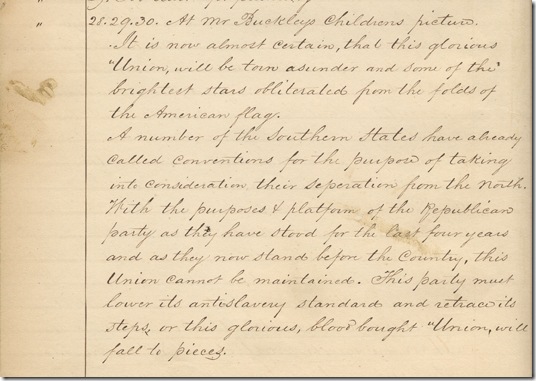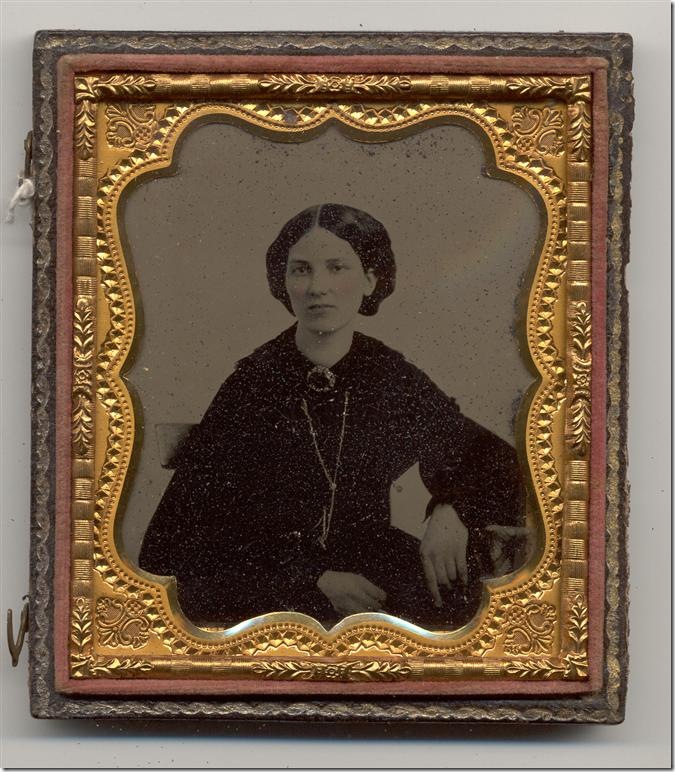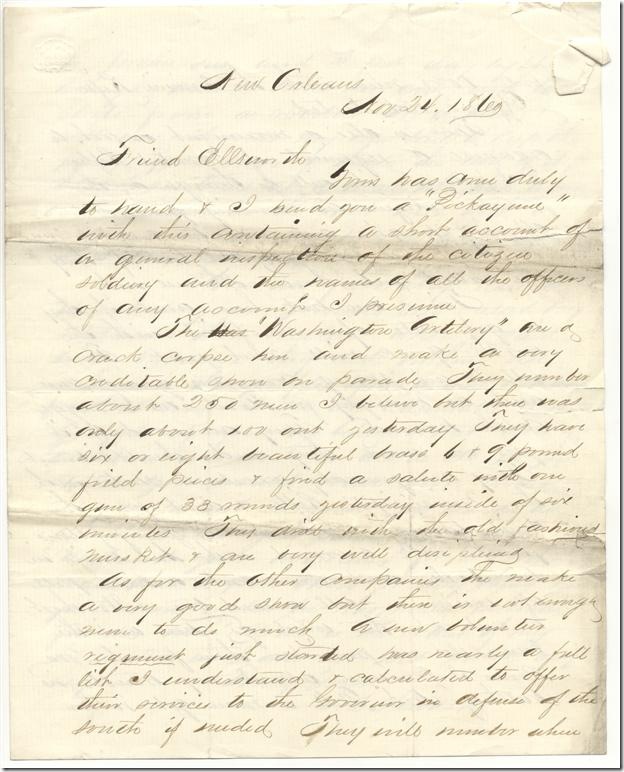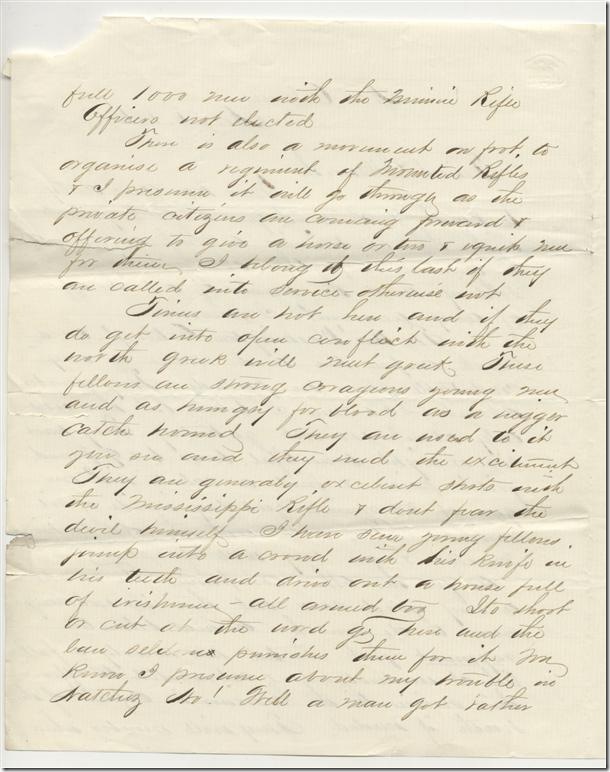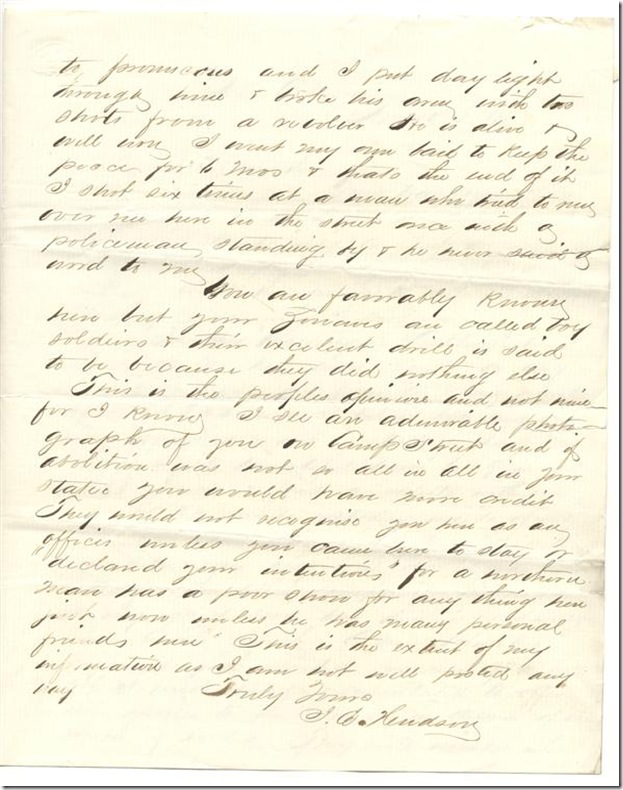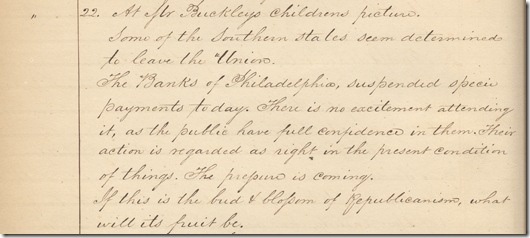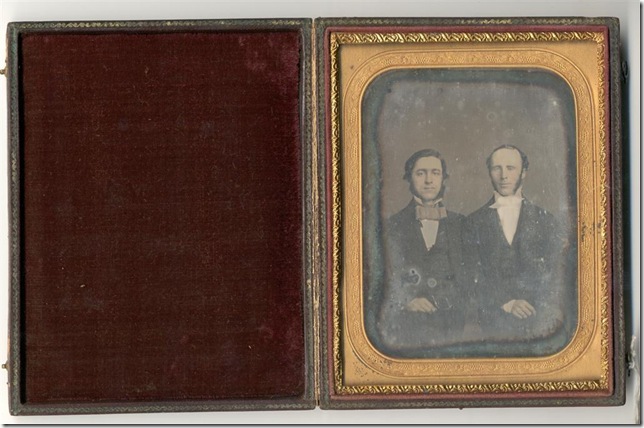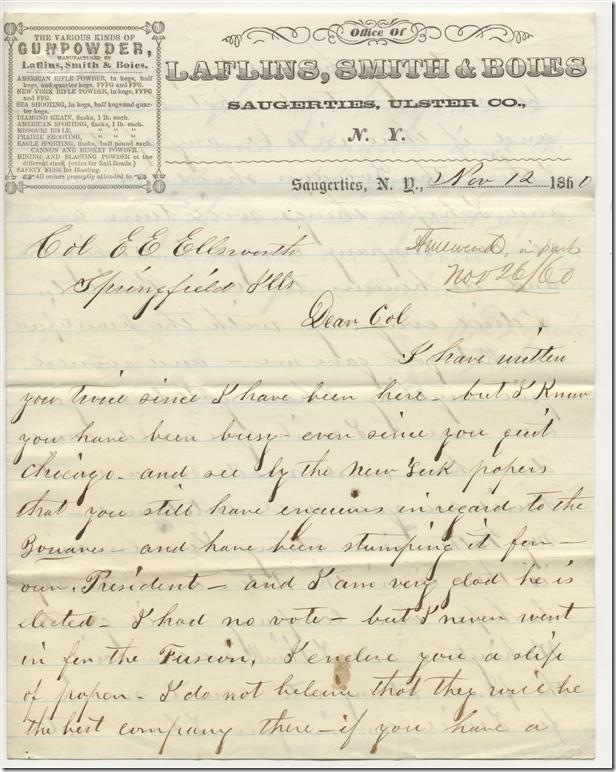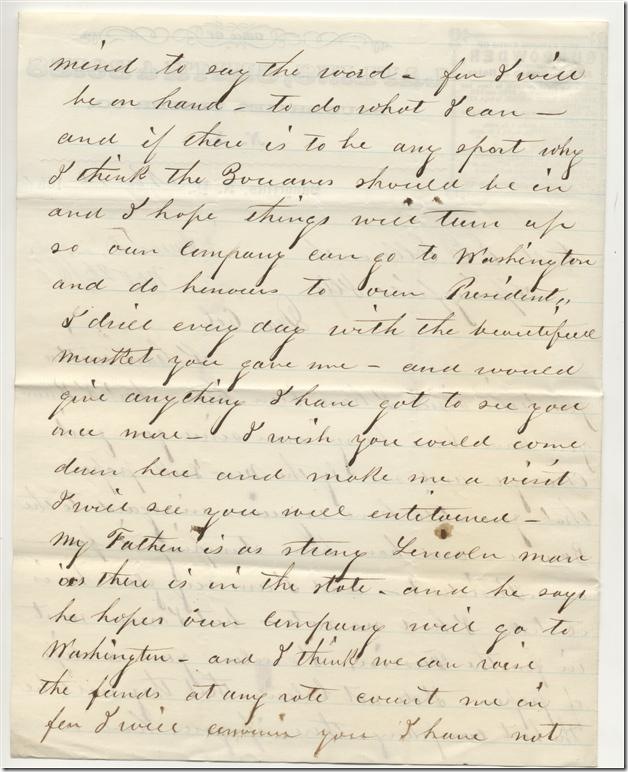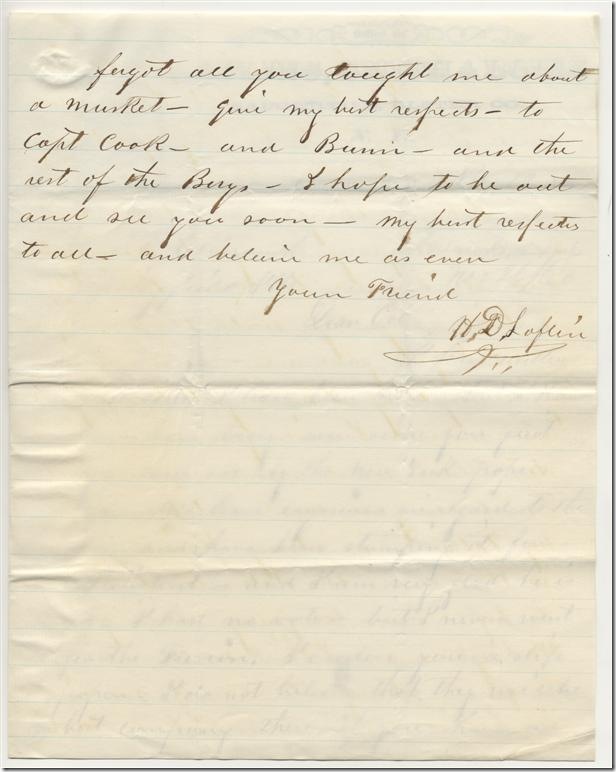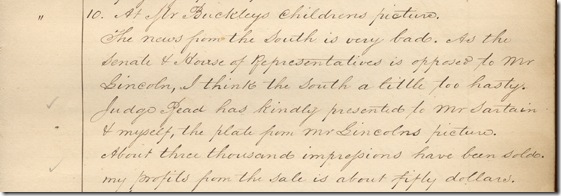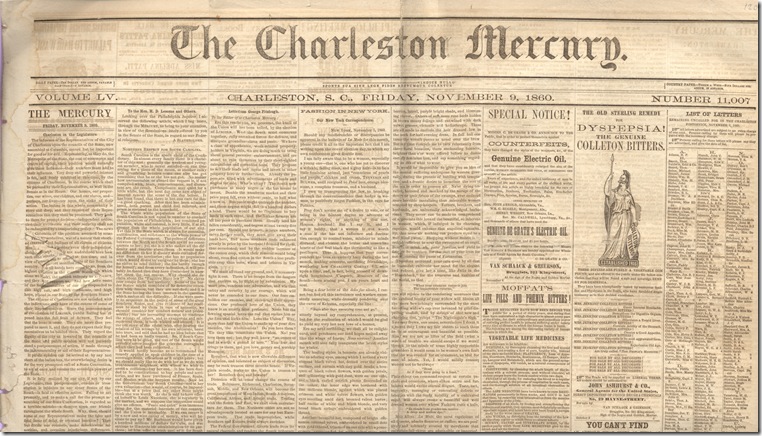John Henry Brown was a painter of portrait miniatures, living and working in Philadelphia. He had met Lincoln in August of 1860 when he was commissioned to paint Lincoln’s portrait for a supporter, but although Brown liked Lincoln personally, he did not agree with Republican policies.
Transcription:
At Mr Buckleys childrens picture.
It is now almost certain, that this glorious union, will be torn asunder and some of the brightest stars obliterated from the folds of the American flag.
A number of the Southern States have already called conventions for the purpose of taking into consideration their separation from the north. With the purpose & platform of the Republican party as they have stood for the last four years and as they now stand before the Country, this Union cannot be maintained. This party must lower its antislavery standard and retrace its steps, or this glorious, blood bought Union, will fall to pieces.
Citation: John Henry Brown (1818-1891), autograph journal/account book. Philadelphia, 1844-1890. AMs 574/14.1
